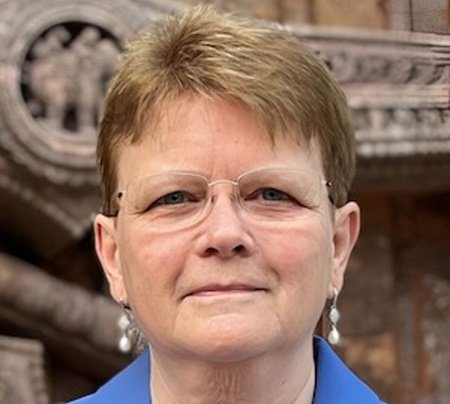ICRISAT DG Dr Jacqueline Hughes to assume role of Secretary General of the World Agriculture Forum
Dr Hughes has over 30 years’ experience in agricultural research for development and is highly regarded for her leadership in tackling the pressing global challenges of food insecurity, sustainable agriculture.
Dr Jacqueline d’Arros Hughes, outgoing Director General of the International Crops Research Institute for the Semi-Arid Tropics (ICRISAT), headquartered in Hyderabad, India, is set to take up the role of Secretary General of the World Agriculture Forum in mid-November 2024. Her extensive career, marked by groundbreaking work in sustainable agriculture, equips her to steer the Forum towards its mission. As Secretary General, Dr Hughes will focus on strengthening alliances and advancing innovative solutions in agriculture, ensuring the World Agriculture Forum is well-positioned to address the evolving needs of the sector globally. Her appointment is a testament to WAF’s commitment to bringing visionary leaders on board.
Dr Hughes has over 30 years’ experience in agricultural research for development and is highly regarded for her leadership in tackling the pressing global challenges of food insecurity, sustainable agriculture, and rural development in some of the world’s most vulnerable regions.
Trained in the United Kingdom, Dr Hughes holds a PhD from Reading University and began her career with postdoctoral work before working with national partners in Ghana. Throughout her career, Dr Hughes has held international leadership positions in prestigious agricultural institutes across Africa and Asia, equipping her with a profound understanding of the unique challenges faced by these regions.
A distinguished plant virologist, Dr Hughes has strong interests in remote sensing, digitalisation, and gender equity. She continues to champion the integration of modern technologies, plant quarantine best practices, and the ethical use of intellectual property to enhance agricultural outcomes. Dr Hughes believes in both working locally for global impact and working globally for local impact.
As Director General of ICRISAT, Dr Hughes adeptly led the Institute through the global pandemic, achieving significant milestones despite unprecedented challenges. Under her leadership, ICRISAT was honoured with the Africa Food Prize 2021 and welcomed the Honourable Prime Minister of India, Narendra Modi, at the Institute’s 50th Anniversary celebrations in 2022. Dr Hughes further strengthened ICRISAT’s influence as a leader in dryland agriculture in 2023, actively participating in the agriculture meetings of the G20 Summit held in New Delhi and serving as co-Chair of the International Steering Committee for the United Nations’ International Year of Millets.
Rudy Rabbinge, Chairman of the World Agriculture Forum, remarked: “Dr Hughes brings to the World Agriculture Forum a wealth of experience and a commitment to agricultural innovation that is critical to achieving our mission. Her proven ability to deliver impactful results, her deep understanding of the international agricultural landscape, and her vision for sustainable intensification will strengthen the World Agriculture Forum’s position as a leader and partner in addressing food and nutrition security worldwide.”
Dr Hughes has over 30 years’ experience



